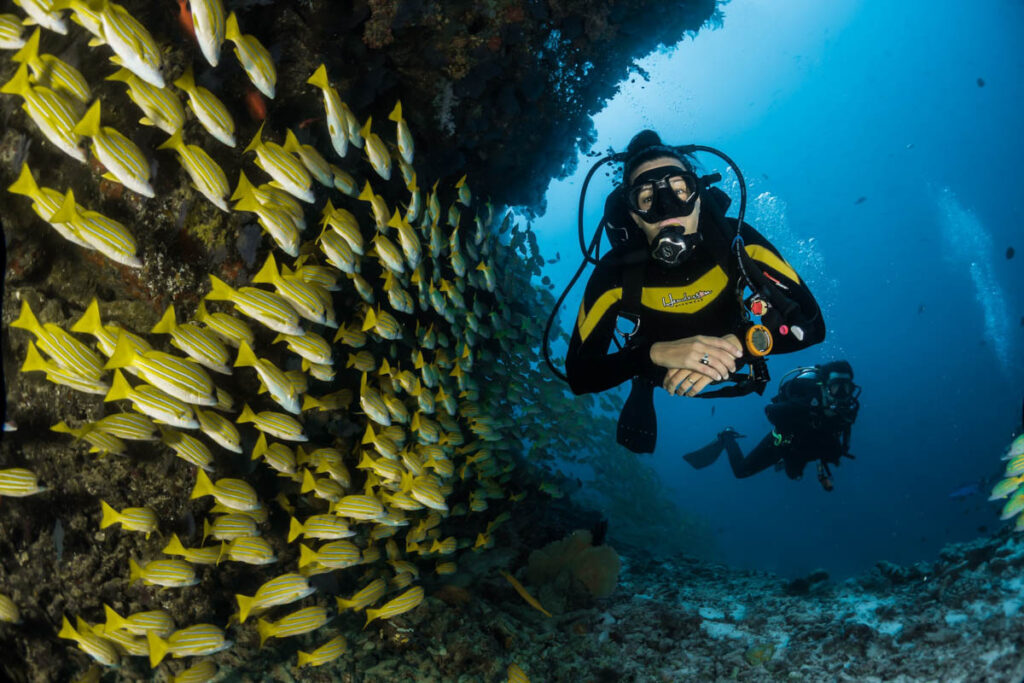In scuba instruction, clarity, safety, and performance are everything. New divers must grasp not only the “how” of dive skills but also the “why” —why the skill matters, how it connects to safety, and what happens if it is not performed correctly.
Traditionally, instructors have explained these points with authority and repetition. But there is a powerful method that can deepen understanding and improve long-term retention: Socratic questioning.
Named after the Greek philosopher Socrates, Socratic questioning is a teaching approach that uses carefully crafted questions to lead learners toward their own conclusions. It encourages active thinking, reveals misconceptions, and allows students to connect their training to personal insight and understanding. For scuba instructors, using this method is not just a matter of student-centered it is a way to create safer, more confident divers.
Moving Beyond Memorization
A common pitfall in diver education is the tendency of students to memorize skills mechanically without understanding their function.
Like, a student may know that they should not hold their breath while ascending but may not fully grasp the physiological consequences of doing so. Instead of repeating “never hold your breath,” an instructor using Socratic questioning might ask:
“What do you think happens to the air in your lungs as you ascend?”
“If air expands when pressure decreases, what could that mean for your lungs?”
“Why do you think that rule exists?”
These questions prompt students to think critically, apply theory (like Boyle’s Law), and develop a conceptual understanding of the risk of lung over-expansion injuries. Once a student understands the “why,” they are far more likely to remember and apply the “how” consistently under pressure.
Aligning Skills with Objectives
Every scuba skill has an objective—whether it is managing buoyancy, clearing a mask, or performing an air-sharing ascent. Rather than simply instructing a student to perform a skill, Socratic questioning helps them understand the purpose of that skill within the context of diver safety and comfort.
Take mask clearing as an example. Instead of saying, “You need to be able to clear your mask,” the instructor might ask:
“What would you do if your mask started leaking during a dive?”
“How would a full mask of water affect your ability to see or stay calm?”
“Why is it important to be able to clear your mask without surfacing?”
These questions prompt reflection and link the skill directly to real-world situations. The student becomes more aware of the purpose behind the training, and in turn, more motivated to master it.
Supporting Student Development Through Repetition
At ISC (International Scuba Certification), we emphasize repetition of essential dive skills as part of our standards for competency. This approach is not about rote repetition, it is about reinforcing confidence, consistency, and skill retention through deliberate practice with clear learning outcomes.
Socratic questioning complements this model perfectly. By engaging the student with reflective questions during each practice cycle, instructors can transform repetition into developmental learning.
For example:
“What felt easier about that skill this time?”
“What did you change that improved your buoyancy control?”
“How might that adjustment help on a deeper or more challenging dive?”
This approach encourages students to assess their own progress and take ownership of refining their techniques, turning repetition from a mechanical drill into meaningful development. It also gives the instructor insight into the student’s learning mindset and readiness to move forward.
Reducing Anxiety and Increasing Engagement
Socratic questioning also helps reduce performance anxiety. Many students feel overwhelmed by skills that initially seem difficult, such as mask removal or controlled emergency swimming ascents. By engaging students in thoughtful dialogue, instructors shift the tone from pressure to perform to exploration and learning.
An instructor might say:
“What part of this skill feels most challenging to you?”
“Why do you think that part causes stress?”
“What could help you stay calmer while doing it?”
These questions validate the students’ experience and create an open space for problem-solving. Often, students discover their own solutions, such as focusing on breathing or breaking the skill into smaller steps. This builds trust and encourages ownership of the learning process.
Spotting and Correcting Misconceptions
One of the greatest benefits of Socratic questioning is that it reveals misunderstandings before they become dangerous habits. If a student believes, for example, that they do not need to check their pressure gauge frequently because they “know how long a tank lasts,” a few simple questions can uncover and correct that belief:
“Do you think all tanks last the same amount of time for every diver?”
“What might change your air consumption from one dive to the next?”
“How would you know if something unexpected—like a free-flow—was affecting your supply?”
This method corrects errors without embarrassment and reinforces key safety behaviors through logic rather than correction alone.
Conclusion: A Tool for Better Instructors and Safer Divers
Socratic questioning is not about testing students with subjective questions, it is about engaging them in meaningful dialogue that encourages curiosity, self-reflection, and critical thinking. By using this method, scuba instructors can deepen student understanding, improve skill retention, reduce anxiety, and promote safer decision-making underwater.
Combined with ISC’s structured approach to skill repetition and objective-based learning, Socratic questioning becomes a powerful tool for developing confident, thoughtful divers who not only meet the standard—but understand it. That depth of understanding is what turns training into mastery, and students into safe, competent dive buddies for life.







